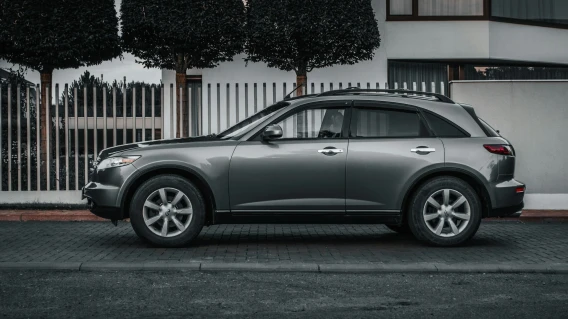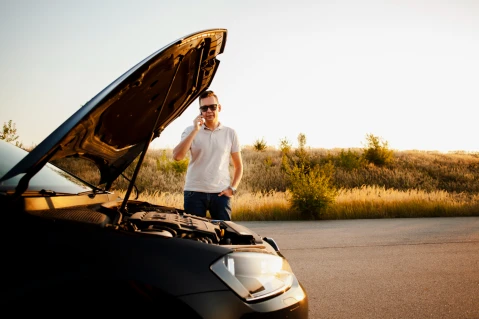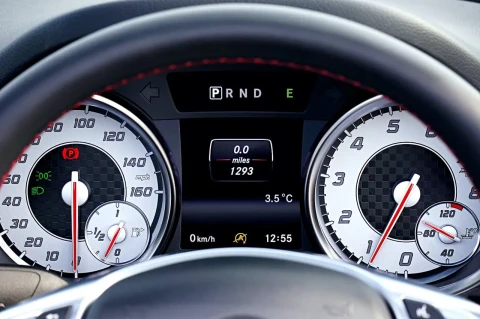La voiture que vous conduisez chaque jour est-elle vraiment fiable ? Vous pourriez penser qu'elle l'est puisqu'elle n'est pas encore tombée en panne, mais il y a toujours un risque que quelque chose se passe mal.
Vous devriez faire inspecter votre véhicule régulièrement. Un coup d'œil professionnel sous le capot révélera les problèmes avant qu'ils ne deviennent une menace pour la sécurité. Plus vite les problèmes sont détectés, moins il est coûteux de les corriger.
Vous voudrez également savoir si votre véhicule ou l'un de ses composants a fait l'objet d'un rappel. Les rappels de véhicules sont une triste réalité et ils arrivent souvent. Il suffit de consulter une liste actualisée de véhicules rappelés pour savoir si votre véhicule y figure.
Comment trouver des informations sur le rappel de votre véhicule ? Et peut-on remplacer ou réparer l'équipement de votre véhicule lorsque ce dernier est rappelé ? Continuez la lecture pour en savoir plus.
En quoi consistent les rappels de véhicules ?
Il existe différents types de rappels de véhicules. Les rappels de sécurité sont les plus importants car la vie ils concernent la vie des personnes si une voiture présente des défauts liés à la sécurité.
Ces rappels sont gérés par la National Highway Traffic Safety Administration, qui dépend du DOT, ou Département des transports.
Toutefois, le plus souvent, ce sont les constructeurs automobiles qui procèdent au rappel de leurs véhicules. Ils procèdent à des rappels lorsqu'un problème ou un défaut de sécurité est découvert dans les composants du véhicule et que la sécurité du conducteur est en jeu.
Les constructeurs avertissent tous les propriétaires de ce type de véhicule, ou d'un véhicule contenant un certain composant défectueux. Ils encouragent les conducteurs à faire réviser leur véhicule. La réparation des rappels de sécurité est payée par le constructeur.
Lorsqu'un rappel est effectué, les constructeurs automobiles envoient des avis par courrier, par email ou par téléphone. Mais si vos coordonnées ont changé, ou si vous achetez une voiture d'occasion, il se peut que vous ne receviez pas d'avis.
C'est pourquoi il est important de vérifier régulièrement s'il y a eu des rappels. C'est très facile à faire et cela vous permet d'avoir l'esprit tranquille chaque fois que vous conduisez.
Autres types de rappels et de défauts de voitures
Des rappels liés aux émissions se produisent également, nuisant inutilement à l'environnement Ces types de rappels sont généralement traités par l'APE, ou Agence de protection de l'environnement.
Grâce à la loi Clean Air Act, l'APE peut exiger des constructeurs qu'ils rappellent les véhicules qui ne répondent pas aux normes d'émission lors d'une utilisation normale. Lorsqu'un défaut est constaté, les fabricants procèdent généralement au rappel de leur propre chef, plutôt que d'attendre un avis de l'APE.
D'autres types de défauts de fabrication peuvent être constatés, mais ils ne sont ni liés à la sécurité ni aux émissions des véhicules à moteur et ne sont pas gérés par les agences fédérales. Il peut s'agir, par exemple, de problèmes liés aux climatiseurs ou à d'autres équipements de confort.
Ces défauts ne sont généralement pas payés par l'entreprise automobile, car il n'y a pas de problème de sécurité. Votre garantie de propriété peut couvrir ces problèmes.
Comment savoir si ma voiture a été rappelée ?
Vous n'avez peut-être pas reçu d'avis de votre constructeur, ou vous avez acheté le véhicule auprès d'un particulier. Vous pouvez facilement consulter toutes les informations relatives au rappel en ligne. Voici comment procéder.
Trouvez votre VIN
Tout d'abord, trouvez votre (VIN). Le VIN ou numéro d'identification du véhicule est le code unique à 17 caractères de votre véhicule.
Vous devriez pouvoir trouver ce numéro à plusieurs endroits. Vous pouvez le trouver derrière la portière côté conducteur, au niveau du pare-brise.
Il peut également être inscrit sur un autocollant à l'intérieur du capot. Vous pouvez aussi retrouver ces informations sur vos cartes d'immatriculation et d'assurance. Votre VIN peut vous révéler de nombreuses informations sur votre voiture.
Consulter la liste des rappels
Une fois que vous connaissez votre VIN, vous pouvez utiliser l'outil de recherche sur la base de données des rappels de la NHTSA. Visitez le site www.nhtsa.gov/recalls et saisissez votre VIN.
Si rien ne s'affiche, cela signifie qu'aucun rappel n'est émis pour votre véhicule. Mais si vous constatez un rappel, vous devrez lire les informations et prendre rapidement des mesures.
Vous voulez avoir l'esprit tranquille ? Sauvegardez votre VIN dans un endroit sûr, mais facile d'accès, comme sur votre ordinateur ou votre smartphone. Définissez un rappel tous les 6 mois dans votre calendrier pour vérifier si votre voiture n’est concernée par un rappel. Cela ne prendra que quelques secondes et peut vous sauver la vie.

Que faire lorsque ma voiture est rappelée ?
Votre voiture fait donc l'objet d'un rappel. Ne vous inquiétez pas, au moins vous n'aurez pas à payer pour cela, même si cela risque de vous causer des désagréments.
Vous devrez prendre un rendez-vous de rappel avec votre concessionnaire local et devrez amener le véhicule pour le faire réparer. L'avis de rappel vous informera si votre voiture présente un danger pour la conduite, ou si vous pouvez au moins la conduire jusque chez votre concessionnaire.
S'il s'agit d'un problème grave, vous pouvez demander au concessionnaire de venir chercher votre véhicule. Cela aussi ne devrait rien coûter.
Votre concessionnaire remplacera alors les pièces défectueuses. Si cela prend plus d'une journée, vous pouvez recevoir une voiture de courtoisie. Dans l'ensemble, c'est un processus facile.
Pourquoi il est important de prêter attention aux rappels de constructeurs automobiles ?
Il se peut que vous ne prêtiez pas beaucoup d'attention à votre véhicule ou aux avis de rappel publics. Vous ne vous êtes jamais dit que votre voiture pourrait tomber en panne. Mais vous devez y prêter attention.
Récemment, le constructeur automobile Hyundai a rappelé plus de 400 000 SUV Tucson en raison d'un problème avec le système de freinage antiblocage qui pourrait potentiellement s'enflammer et provoquer un incendie.
Les propriétaires de véhicules sont encouragés à garer leur voiture à l'extérieur, loin des structures pour éviter que les constructions ne brûlent au cas où leur voiture s'enflammerait.
Kia a également procédé à un rappel similaire récemment, car il partage des pièces avec Hyundai, puisque ce dernier est la société mère de Kia.
Au cours des dernières années, ces sociétés ont ensemble rappelé plus de 2,5 millions de voitures en raison du risque d'incendie.
Ford quant à lui a dû rappeler récemment plus de 2,7 millions de véhicules pour des problèmes d'airbag. Cela inclut les voitures dont le modèle a été fabriqué entre 2006 et 2012.
Ces véhicules contiennent des airbags fabriqués par une société appelée Takata, qui est actuellement en faillite. Ces airbags sont en effet réputés pour leur dégradation et leur gonflement trop fort, ce qui a causé de nombreuses blessures et quelques décès.
Et il y a de nombreux autres rappels, rien que l'année dernière, que les utilisateurs doivent connaître afin de garantir la sécurité.
Restez informé des rappels en cours
Il est important de vérifier régulièrement la liste de rappel pour savoir si votre voiture présente un risque lié à la sécurité. Consultez intégralement la liste des rappels en cours, car vous connaissez peut-être quelqu'un dont le véhicule est concerné.
Par ailleurs, pas d’inquiétude car les voitures rappelées sont réparées gratuitement. Assurez-vous d'être aussi prudent que possible lorsque vous êtes sur la route.
Vous voulez savoir quelles autres informations votre VIN peut vous révéler ? Consultez cet exemple de rapportpour voir ce que vous pouvez apprendre en recherchant votre VIN sur EpicVIN.







